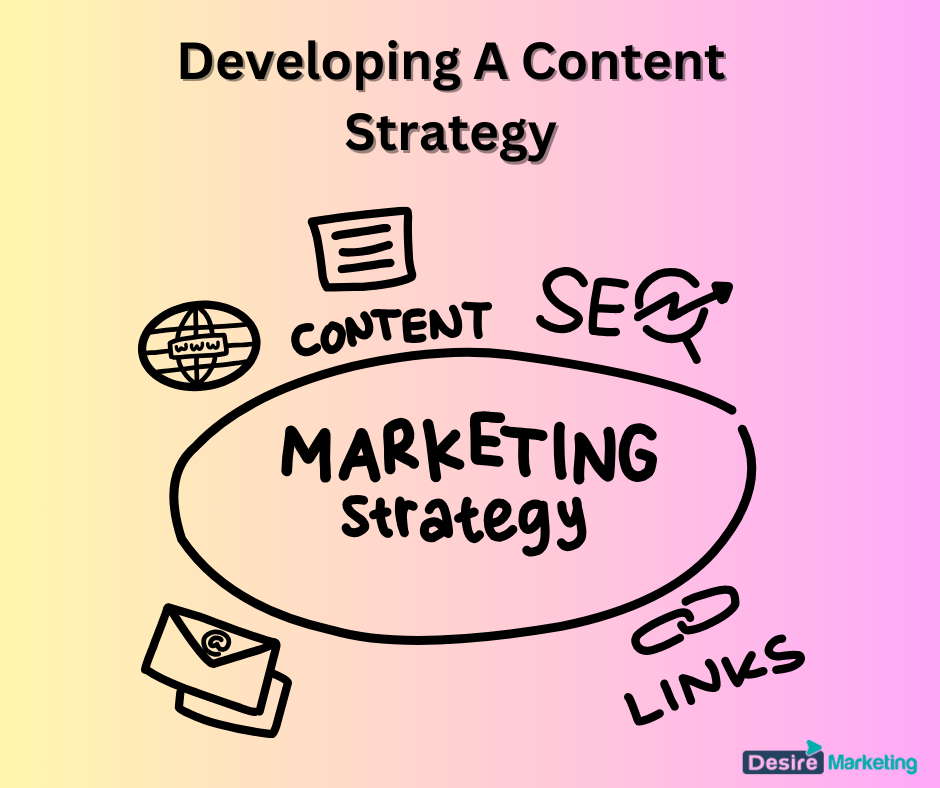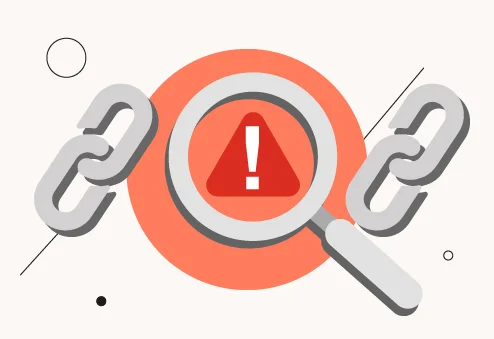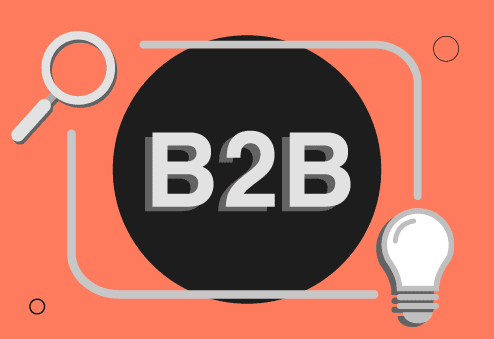Attracting new clients and growing your professional services firm is more competitive than ever in 2024. While referrals and word-of-mouth may have been enough in years past, today’s buyers are increasingly turning to the internet and content to research and vet potential service providers long before they pick up the phone.
That’s where a savvy content marketing strategy comes in for accounting firms, law practices, IT consultants and other professional service providers wanting to boost their visibility and authority online.
In this comprehensive guide, we’ll walk you through step by step process for leveraging content to reach potential customers, demonstrate your expertise, outshine online competitors and ultimately win new business for your firm in 2023 and beyond.
Let’s jump into this.
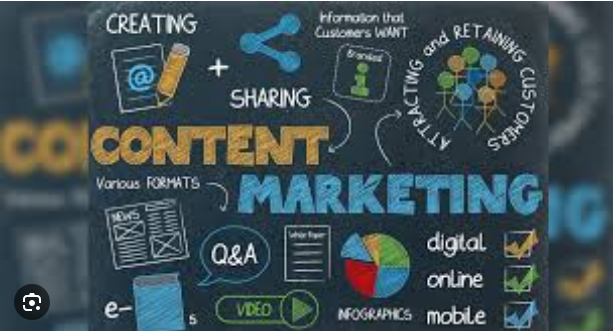
Understanding The Importance Of Content Marketing For Professional Services
Discover the power of content marketing for professional services with this comprehensive step-by-step guide. Learn how to effectively promote your expertise and build credibility through valuable content that speaks directly to your target audience. Boost your online presence and attract more clients in the digital realm.
Defining Content Marketing For Professional Services
Content marketing for professional services refers to the strategic approach of creating and distributing valuable and relevant content to attract and engage the target audience of professional service providers. It involves utilizing various forms of content, such as blog posts, articles, whitepapers, videos, and social media, to establish expertise, build trust, and generate leads.
The goal is to provide helpful information that educates, informs, and solves the audience’s pain points while subtly promoting the services offered by the professionals.
Key points:
- Content marketing is a strategic approach to creating and distributing valuable and relevant content.
- It involves utilizing various forms of content to establish expertise and trust.
- The goal is to provide helpful information while subtly promoting professional services.
Why Content Marketing Is Crucial For Professional Service Providers
Professional service providers need to embrace content marketing to effectively showcase their expertise and build lasting relationships with their target audience. Here’s why content marketing is crucial for them:
- Establishing expertise: By consistently creating high-quality content that addresses industry-specific challenges, professional service providers can position themselves as thought leaders in their field. This helps to establish credibility and gain the trust of potential clients.
- Building trust: Content marketing allows professionals to educate and share valuable insights with their audience, demonstrating their expertise and knowledge. This builds trust, making clients more likely to choose their services over competitors.
- Generating leads: Content marketing opens up opportunities to capture the attention of potential clients who are actively seeking solutions to their problems. By providing valuable content, professional service providers can attract and nurture leads, leading to increased conversions and business growth.
- Enhancing brand visibility: Creating and sharing content across different marketing channels boosts brand visibility and awareness. It enables professionals to reach a wider audience and attract potential clients who may not have been previously aware of their services.
- Nurturing client relationships: Content marketing is not just about attracting new clients; it also serves as a means to engage existing clients and maintain long-term relationships. Regularly sharing valuable content keeps professionals top of mind and encourages repeat business.
- Competitive advantage: Effective content marketing sets professional service providers apart from their competitors. It allows them to showcase their unique value proposition and differentiate themselves within the market.
Exploring The Benefits Of Content Marketing For Professional Services
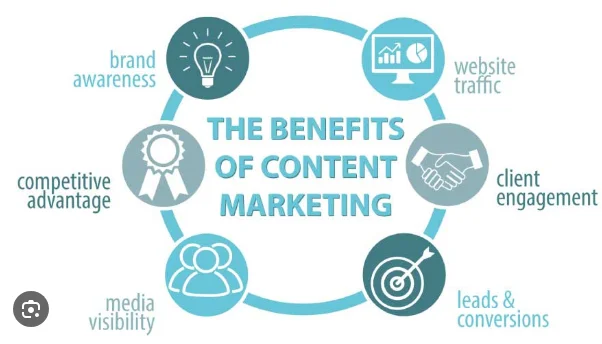
Content marketing offers numerous benefits that can enhance the overall success of professional service providers. Here’s a closer look at some of these benefits:
- Increased website traffic: By consistently creating and promoting valuable content, professional service providers can attract more visitors to their website. This can lead to higher organic search rankings, increased referral traffic, and more opportunities for engagement.
- Improved search engine visibility: Creating optimized content helps professional service providers rank higher in search engine results pages, making it easier for potential clients to find them when searching for related keywords or topics.
- Enhanced brand reputation: By consistently providing helpful, informative, and valuable content, professional service providers can enhance their brand reputation. Clients and industry peers perceive them as knowledgeable, trustworthy, and reliable.
- Strengthened client relationships: Content marketing is an excellent tool for nurturing client relationships. Relevant and personalized content can be shared with existing clients, enhancing engagement, and keeping them informed about important industry trends, updates, and new services.
- Increased conversions and sales: Well-crafted content can influence potential clients at different stages of the buyer’s journey, increasing the likelihood of conversions and ultimately driving sales. By addressing their pain points and providing solutions, content marketing guides clients towards choosing the professional services offered.
- Cost-effective marketing strategy: Content marketing is often more cost-effective compared to traditional advertising methods. With proper planning and execution, professional service providers can generate significant returns on investment by leveraging content marketing strategies.
Content marketing is an invaluable tool for professional service providers. By establishing expertise, building trust, and attracting and nurturing leads, content marketing can elevate their brand, increase visibility, and drive business growth.
Developing A Content Strategy For Professional Services
Crafting a content strategy for professional services requires careful planning and execution. This step-by-step guide to content marketing for professional services offers insights and practical tips to help you navigate the process and drive success for your business.
Identifying your target audience and their needs:
- Research and understand your target audience’s demographics, preferences, and pain points.
- Determine the specific challenges they face in their professional lives.
- Identify the information or solutions they seek to address those challenges.
- Segment your audience based on their unique needs to create tailored content.
Conducting keyword research for professional services:
- Use keyword research tools like google keyword planner to discover relevant keywords for your industry.
- Focus on long-tail keywords that are specific to your professional services and have lower competition.
- Consider the search intent behind keywords to align your content with what your target audience is looking for.
- Incorporate keywords naturally into your content to optimize it for search engines.
Creating a content calendar for consistent publishing:
- Define a publishing frequency that suits your resources and aligns with your audience’s expectations.
- Brainstorm content ideas that cater to your audience’s needs and answer their questions.
- Prioritize topics that showcase your expertise and highlight the value of your professional services.
- Map out content distribution across various channels, such as your blog, social media, and email newsletters.
By developing a comprehensive content strategy for professional services, you can effectively engage and attract your target audience. By identifying their needs, conducting keyword research, and creating a content calendar, you can ensure consistent publishing and deliver valuable content that resonates with your audience.
With a well-executed strategy, you’ll strengthen your online presence and establish yourself as a trusted authority in your industry.
Creating Compelling Content For Professional Services
Discover the step-by-step guide to crafting compelling content that drives success for professional services. Learn proven strategies to boost your content marketing efforts and engage your target audience effectively. Gain insights on how to create high-quality, seo-friendly content that showcases your expertise and builds trust with your clients.
Crafting Engaging Blog Posts For Professional Services
- Blog posts are a powerful tool for professional service providers to showcase their expertise and attract potential clients. Here’s how you can craft compelling blog posts:
- Define your target audience: Understand the needs, pain points, and interests of your ideal clients to create content that resonates with them.
- Choose relevant topics: Research trending industry topics and address common questions or challenges faced by your target audience.
- Write attention-grabbing headlines: Craft compelling headlines that pique curiosity and encourage readers to click and read your blog post.
- Provide valuable information: Offer actionable advice, practical tips, or insightful analyses that demonstrate your expertise and help your audience solve their problems.
- Use a conversational tone: Write in a style that feels like a friendly conversation, avoiding jargon and overly formal language. Be approachable and relatable to your readers. If you ever get stuck trying to make a sentence sound more natural, a sentence rewriter can give you a quick boost without overthinking it.
- Break it down: Organize your blog post using subheadings, bullet points, and numbered lists to enhance readability and make the content easier to digest.
- Incorporate visuals: Include relevant images, infographics, or charts to enhance understanding and engage your audience visually.
- Include call-to-action (cta): At the end of your blog post, guide readers to the next step they should take, such as subscribing to your newsletter, contacting you for a consultation, or sharing the post on social media.
Developing Informative Whitepapers And Case Studies
- Whitepapers and case studies are valuable tools for professional service providers to showcase their expertise and build trust with potential clients. Here’s how you can develop informative whitepapers and case studies:
- Identify relevant topics: Choose topics that align with your target audience’s interests and needs. Focus on solving their problems or addressing industry-specific challenges.
- Conduct in-depth research: Gather data, statistics, and insights to support your arguments and make your whitepapers or case studies more compelling.
- Structure your content: Break your whitepaper or case study into logical sections such as an executive summary, introduction, methodology, findings, and conclusion. This helps readers navigate the content easily.
- Provide real-life examples: Include case studies that demonstrate how your professional services have helped clients achieve their goals or overcome challenges. Use storytelling techniques to make these examples relatable and engaging.
- Offer actionable takeaways: Provide practical recommendations, strategies, or best practices that readers can implement in their own businesses or situations.
- Use clear and concise language: Avoid industry jargon and technical terms that may confuse or alienate readers. Communicate complex ideas in a straightforward and accessible manner.
- Design professionally: Pay attention to the layout, typography, and formatting of your whitepapers or case studies. Use visuals, such as charts or graphs, to present data in a visually appealing way.
- Promote your content: Create distribution strategies to ensure your whitepapers or case studies reach your target audience. This can include leveraging email marketing, social media, and industry partnerships.
Utilizing Video Content To Showcase Expertise
Video content is a highly effective medium for professional service providers to demonstrate their expertise, engage their audience, and establish a strong online presence. Here’s how you can utilize video content effectively:
- Choose relevant topics: Determine what information or insights your target audience would find valuable and create videos around those topics. Address common questions or challenges they may have.
- Plan your content: Outline the key points you want to cover in your video and script it to ensure a clear and concise delivery. Consider using storytelling techniques to captivate your viewers.
- Showcase your personality: Use videos as an opportunity to showcase your unique personality and build a personal connection with your audience. Be authentic and let your passion for your profession shine through.
- Keep it concise: Aim for shorter videos that are focused and to the point. Attention spans are typically shorter online, so ensure your message gets across within a few minutes.
- Optimize for search engines: Use relevant keywords in your video titles, descriptions, and tags to improve discoverability in search engine results. Consider transcribing your videos to make them more accessible to search engines.
- Engage with your audience: Encourage viewer interaction by asking questions, responding to comments, and incorporating interactive elements like quizzes or polls in your videos. Just like with Quiz Maker Plugin, adding interactive elements like quizzes or polls to your content helps keep your audience engaged and encourages them to participate.
- Share on multiple platforms: Distribute your videos across various platforms, such as YouTube, LinkedIn, and your website, to reach a wider audience and increase your visibility.
- Measure and analyze: Monitor video performance metrics, such as views, engagement, and shares, to understand what content resonates best with your audience. Use these insights to refine your future video content.
Remember, whether it’s through engaging blog posts, informative whitepapers and case studies, or captivating videos, creating compelling content for professional services is vital to attracting and converting clients in today’s digital landscape.
Also Read The Ultimate Guide to Content Marketing
Optimizing Content For Search Engines In Professional Services
Learn how to optimize your content for search engines in professional services with this comprehensive step-by-step guide. Boost your online presence and attract more clients by following seo-friendly strategies tailored specifically for the professional services industry.
When it comes to content marketing for professional services, optimizing your content for search engines is crucial to ensure maximum visibility and attract potential clients. By implementing effective seo strategies, you can improve your website’s search engine rankings and increase organic traffic.
In this section, we will explore three essential aspects of optimizing content for search engines in professional services: conducting on-page seo, implementing off-page seo techniques, and utilizing local seo strategies.
Conducting On-Page Seo For Professional Service Websites:
- Keyword research: Identify relevant keywords and key phrases that potential clients are likely to search for. Conduct in-depth research to understand the search intent behind these keywords.
- Keyword optimization: Incorporate the selected keywords and key phrases into your website’s content, including page titles, headings, meta descriptions, and body text. However, ensure that the content remains natural and engaging for human readers.
- Optimized page titles and meta descriptions: Craft compelling titles and meta descriptions that accurately represent the content of each page. Include relevant keywords to increase visibility in search engine results pages (serps) and entice users to click through.
- Content relevance and quality: Develop high-quality content that addresses the needs and queries of your target audience. Ensure that your content is comprehensive, informative, and unique, providing value to readers and establishing your expertise in the field.
- Url structure: Create clean and organized urls that include relevant keywords and accurately describe the content of the page. Avoid lengthy and confusing urls that can deter both search engines and users.
Implementing Off-Page Seo Techniques For Better Visibility:
- Link building: Establishing a strong backlink profile is essential for off-page seo. Seek opportunities to earn high-quality backlinks from reputable websites in your industry. These links act as endorsements of your expertise and improve your website’s credibility.
- Social media engagement: Promote your content on social media platforms to increase its visibility and attract engagement. Encourage users to share and interact with your content, as social signals can indirectly impact your search engine rankings.
- Guest blogging: Contribute guest posts to authoritative websites in your industry. This allows you to reach a wider audience, establish your expertise, and earn valuable backlinks.
- Online directories: List your professional service on relevant online directories and review platforms. This not only increases your online presence but also enhances your local seo efforts.
Utilizing Local Seo Strategies For Professional Service Providers:
- Google my business: Create and optimize your Google My Business listing to appear in local search results. Provide accurate and up-to-date information about your professional services, including your address, phone number, working hours, and website link.
- Local keywords: Incorporate location-specific keywords into your content to target potential clients in your local area. This helps you rank higher in local search results and attract geographically relevant leads.
- Online reviews: Encourage satisfied clients to leave positive reviews on platforms such as Google My Business, yelp, and industry-specific directories. Positive reviews not only improve your online reputation but also boost your local SEO rankings. Google review cards are a valuable cards for showcasing customer satisfaction.
- Local business listings: Ensure that your professional service is listed accurately on relevant local business directories. Consistency in nap (name, address, phone number) information across different listings helps search engines understand and verify your business’s legitimacy.
By implementing these seo strategies, professional service providers can enhance their online visibility and attract potential clients. Remember to stay up-to-date with the latest seo trends and continuously optimize your content to maintain a competitive edge.
Promoting And Distributing Content For Maximum Reach
This step-by-step guide explores content marketing strategies for professional services, focusing on promoting and distributing content for maximum reach. Discover how to increase visibility and engage with your target audience effectively.
Leveraging Social Media Platforms To Reach The Target Audience
Social media has become an integral part of our daily lives, with billions of users worldwide. Incorporating social media into your content marketing strategy is crucial for maximizing reach and engagement. Here are some effective ways to leverage social media platforms and connect with your target audience:
- Identify the most relevant social media platforms for your professional services. Each platform has its unique user demographics and content consumption behavior. Research and choose platforms where your target audience is most active and engaged.
- Create engaging and shareable content tailored for each social media platform. Visual content, such as infographics, videos, and eye-catching images, tends to perform well on platforms like Instagram and Pinterest. Good image editing can enhance the appeal of these visuals, making them more likely to capture attention. Meanwhile, LinkedIn and twitter are more suitable for sharing industry insights, thought leadership articles, and professional updates.
- Utilize hashtags strategically to expand your reach. Use popular and relevant hashtags that your target audience is likely to follow. This will help your content to be discovered by users who are interested in your industry or services. Additionally, consider creating your unique branded hashtag to encourage user-generated content and increase brand visibility.
- Engage with your audience through social media. Reply to comments, messages, and mentions promptly. Show genuine interest in your followers’ opinions and questions. Building a strong and responsive social media presence helps to foster a sense of trust and credibility with your audience.
- Collaborate with influencers in your industry. Influencers can help amplify your content and expose it to a wider audience. Look for influencers who have a strong following and align with your brand values and target audience. Collaborate on content creation, guest posting, or hosting live events or webinars together.
Utilizing Email Marketing Campaigns To Distribute Content

Email marketing remains one of the most effective and personalized ways to distribute your content directly to your target audience’s inbox. Here’s how you can make the most out of your email marketing campaigns:
- Build a permission-based email list. Use website opt-in forms, lead magnets, and gated content to collect email addresses from your website visitors. Make sure to obtain explicit consent and provide clear opt-out options to comply with privacy regulations.
- Segment your email list based on demographics, interests, or previous engagement. This allows you to send highly tailored content based on your subscribers’ preferences, increasing open and click-through rates.
- Craft compelling subject lines that entice recipients to open your emails. Experiment with personalized subject lines, intriguing questions, or intriguing statistics to grab attention in crowded inboxes.
- Create visually appealing and mobile-friendly email templates. Use eye-catching images, concise copy, and clear call-to-action buttons to guide recipients towards your content.
- Share a mix of educational, informative, and promotional content in your emails. Provide valuable insights, industry updates, and practical tips that resonate with your audience. Remember to include links to your blog posts, whitepapers, videos, or other content assets.
- Monitor email analytics and track key metrics such as open rates, click-through rates, and conversions. This data will help you refine your email marketing strategy and improve future campaigns.
By leveraging social media platforms, collaborating with industry influencers, and utilizing email marketing campaigns, you can effectively promote and distribute your content for maximum reach. These strategies enable you to connect with your target audience directly, increase brand visibility, and drive valuable engagement.
Measuring And Analyzing Content Marketing Success
Learn how to effectively measure and analyze the success of your professional services content marketing with this step-by-step guide. Discover the key metrics and strategies to track your content’s performance and optimize your marketing efforts.
Setting Measurable Goals And Key Performance Indicators (Kpis):
- Defining clear goals and kpis is essential for measuring the success of your content marketing efforts.
- Consider the following when setting measurable goals and kpis:
- Align your goals with your overall business objectives.
- Ensure that your goals are specific, measurable, achievable, relevant, and time-bound (smart).
- Examples of content marketing goals and kpis include:
- Increase website traffic by 20% in six months.
- Generate 100 new leads through content downloads per month.
- Achieve a 10% conversion rate from content to paying customers.
Utilizing Analytics Tools To Track Content Performance:
- Analytics tools play a crucial role in tracking and analyzing the performance of your content marketing campaigns.
- Consider the following when utilizing analytics tools:
- Choose the right analytics tool based on your needs and budget. Popular options include google analytics, moz, and SEMrush.
- Track key metrics such as website traffic, session duration, bounce rate, conversion rate, and social media engagement.
- Use a/b testing to compare the performance of different content variations and determine the most effective strategies.
- Regularly monitor analytics data to identify trends, patterns, and areas for improvement.
Adjusting Content Marketing Strategies Based On Data Insights:
- Data insights gained from analytics tools provide valuable information for optimizing your content marketing strategies.
- Consider the following when adjusting your strategies based on data insights:
- Identify top-performing content pieces and analyze what makes them successful.
- Look for gaps or opportunities for improvement in underperforming content and make necessary adjustments.
- Pay attention to audience engagement metrics such as comments, shares, and backlinks to gauge content effectiveness.
- Use data to make informed decisions on content topics, formats, distribution channels, and publishing frequency.
- Continuously test and iterate your content marketing strategies based on data insights to maximize results.
Remember, setting clear goals and kpis, utilizing analytics tools, and leveraging data insights are crucial for measuring and analyzing the success of your content marketing efforts. By continuously adjusting your strategies based on data-driven insights, you can ensure that your content resonates with your target audience and drives desired outcomes.
Conclusion
Implementing a strong content marketing strategy is essential for professional service businesses. By following the step-by-step guide outlined in this blog post, you can effectively increase your online visibility, establish your expertise, and attract new clients. Remember to conduct thorough research to understand your target audience’s needs and preferences, create high-quality and value-driven content, optimize it for search engines, and promote it through various channels.
Leveraging the power of social media, email marketing, and guest blogging can significantly expand your reach and engagement. Consistency and adaptability are key when it comes to content marketing success, so continuously monitor your efforts, track metrics, and make necessary adjustments.
By dedicating time and effort into content marketing, you can position yourself as a go-to resource in your industry and generate valuable leads for your professional services.
Stay committed to delivering valuable content that fulfills your audience’s needs, and you will reap the benefits in the long run.

